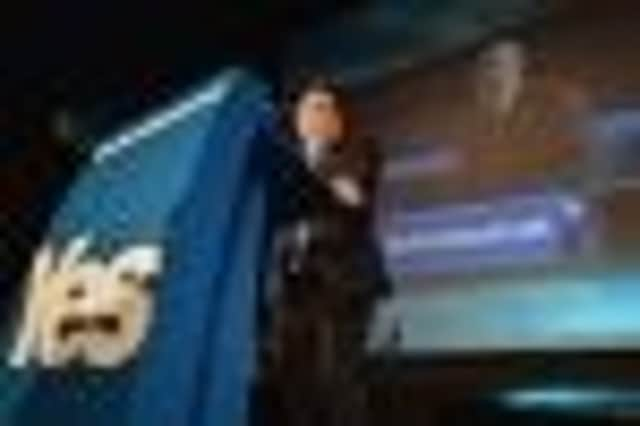Independence: Yes group pressured over £1.1m gifts


Better Together published details yesterday of more than £1m it had received in donations from nearly 10,000 supporters since the campaign’s launch last year, with a similar amount in pledged funds.
Campaign leaders hope their war chest will match the multi-million pounds pledged to the SNP last year.
Advertisement
Hide AdAdvertisement
Hide AdHowever, a £918,000 bequest from poet Edwin Morgan and £1m from lottery winners Colin and Chris Weir are still not thought to have been transferred from SNP coffers to the Yes Scotland campaign.
Yes Scotland said it would publish details of donations it had received “soon”, but would not reveal how much had been pledged by supporters so far or whether it expected to receive the Morgan and Weir donations from the SNP.
The Better Together campaign has been handed ten single donations amounting to £891,000, with oil trader Ian Taylor giving more than £500,000 of the £1,118,451 grand total.
Mr Taylor said he was “delighted to be in a position to help” the campaign, which is being led by former chancellor Alistair Darling, with the backing of Labour, the Conservatives and the Liberal Democrats.
Better Together bosses said the pro-Union campaign had also received pledges of a further £1m from business backers, although these donations had yet to be paid.
The crime writer CJ Sansom, the author of the bestselling historical novel Dominion, was another high profile donor to Better Together, with a £161,000 gift to the campaign.
Oil tycoon Mr Taylor talked about the “high-profile” donations given to Yes Scotland and said he had decided to help bankroll Better Together partly because of Mr Darling’s leadership.
He said: “I admired the fact that Alistair had agreed to give political leadership to the campaign to keep the UK together.
Advertisement
Hide AdAdvertisement
Hide Ad“We both knew that a campaign of this importance and scale would require significant funding. High-profile donations to the SNP had been well publicised. I was delighted to be in a position to help.”
Other Better Together finance included a donation of £25,000 from Douglas Flint, who is chairman of HSBC holdings, and £10,000 from the late Gordon Baxter, of Baxters Food Group.
A further 27 people gave amounts between £500 and £7,500, resulting in a total of £54,066 for campaign coffers.
Blair McDougall, Better Together director, said that the bulk of the cash came from donors giving under £500, with 9,464 people handing over a total of £173,385 – an average of £18.26 per person.
He said: “We are humbled that, in difficult economic times, almost 10,000 people have chosen to make a contribution to our campaign.
“We have not received a penny from political parties. Every penny we have raised, we have raised ourselves, from supporters of our cause.”
A Yes Scotland spokesman called for tighter campaign rules over large donations and claimed that Labour MP Mr Darling had ignored an appeal for both side’s donations to be published at the same time.
A spokesman for Yes Scotland said: “We believe the appropriate position is that both campaigns should agree that any donations above £500 – the legally recognised level over which money given becomes a ‘donation’ – should come only from those registered to vote in Scotland’s referendum.
“Yes Scotland is sticking firmly to that.
Advertisement
Hide AdAdvertisement
Hide Ad“We contacted the No campaign some time ago suggesting that both parties should agree to release donations information simultaneously, but we received no response from Mr Darling or his staff.
“Yes Scotland will be releasing its figures on donations soon.”
A spokeswoman for the SNP said: “Yes Scotland have said they will release details of their donations soon.
“Unlike the No campaign, Yes has a policy of only accepting donations above £500 from people eligible to vote in Scotland’s referendum.
“The SNP’s spending will be published by the Electoral Commission in the normal way.”